For many people, the onset of allergy season means dealing with uncomfortable symptoms like dry eyes and blurry vision. While these symptoms can be frustrating, understanding the connection between allergies and eye health is key to finding relief.
In this blog, we’ll explore how allergies can impact your vision, what symptoms to watch for, and when it might be time to seek professional help.
How Allergies Affect Your Eyes
Allergies can trigger a cascade of reactions in the body, and your eyes are often caught in the crossfire.
When allergens like pollen, dust, or pet dander come into contact with your eyes, your immune system responds by releasing histamines, chemicals that cause inflammation and irritation. This inflammation can lead to various uncomfortable symptoms, including redness, itching, and excessive tearing.
One of the most common complaints among allergy sufferers is dry eyes. When your eyes are exposed to allergens, they may become inflamed and irritated, disrupting the normal production of tears.
Tears are essential for keeping your eyes lubricated and comfortable. When tear production is compromised, dry eyes can occur. This dryness not only causes discomfort, but can also lead to blurry vision, as the lack of adequate moisture on the eye’s surface can interfere with clear sight.
Moreover, the inflammation caused by allergies can affect the tear film—the thin layer of fluid that covers the surface of your eye. This disruption can create an unstable tear film, leading to symptoms like stinging, burning, and a sensation of something being stuck in your eye.
Blurry vision can also result when the tear film is uneven, as light entering the eye is not properly focused. In more severe cases, the combination of dry eyes and inflammation can even contribute to more serious conditions like chronic dry eye or exacerbate existing eye conditions.
It’s important to recognize the impact allergies can have on your eyes and take steps to manage these symptoms to protect your vision and comfort.
Common Allergy Signs & Symptoms
- Redness: Inflammation causes blood vessels in the eyes to dilate, making them appear red.
- Itching: Histamines released during allergic reactions can cause intense eye itching.
- Tearing: Your body may produce excess tears in response to irritation.
- Burning sensation: Irritation from allergens can lead to a burning feeling in the eyes.
- Swelling: Eyelids and surrounding areas may swell due to the immune response.
- Sensitivity to light: Inflammation can make your eyes more sensitive to light.
When Is It More Than Allergies?
If your symptoms persist despite allergy treatment, this could be a sign that something else is at play. Conditions such as dry eye syndrome, conjunctivitis, or even a corneal abrasion can mimic allergy symptoms but require different treatments.
It’s crucial to differentiate between these conditions to ensure that you receive proper care. For instance, while both allergies and dry eye syndrome can cause dryness and irritation, the underlying causes are different, and so are the treatments. If you notice symptoms like discharge from the eye, severe pain, or vision changes that don’t improve with allergy medication, it’s time to see an eye care professional.
Conditions That May Mimic Allergies
- Dry Eye Syndrome: Caused by insufficient tear production or poor tear quality, leading to dryness and irritation.
- Conjunctivitis (Pink Eye): An infection or inflammation of the conjunctiva, causing redness, swelling, and discharge.
- Blepharitis: Inflammation of the eyelids, often causing itching, redness, and crusting of the eyelids.
- Keratitis: Inflammation of the cornea, which can cause pain, redness, and blurry vision.
- Corneal Abrasion: A scratch on the cornea that can cause pain, redness, tearing, and sensitivity to light.

Treating Allergies to Improve Your Visual Comfort
Managing allergy symptoms effectively is key to maintaining your eye health and visual comfort. The first step in treatment is identifying and avoiding your specific allergens.
This might involve staying indoors during high pollen seasons, using air purifiers to reduce indoor allergens, or wearing sunglasses to shield your eyes from airborne irritants. Over-the-counter antihistamines can help reduce symptoms like itching and redness, but be cautious—some antihistamines can also dry out your eyes, potentially worsening your symptoms.
Artificial tears are another over-the-counter option to help keep your eyes lubricated and wash away allergens.
For more persistent or severe symptoms, prescription medications may be necessary. Your eye care professional can prescribe stronger antihistamines, corticosteroids, or other medications to manage inflammation and discomfort. Sometimes, allergy shots (immunotherapy) may be recommended to reduce your body’s reaction to allergens over time.
Lifestyle changes can also significantly help manage eye allergies. Regularly cleaning your home to remove dust and allergens, washing your face and hands after being outdoors, and using hypoallergenic bedding can all help reduce your exposure to allergens.
In addition to these measures, maintaining a good eye care routine is essential. This includes managing allergies and ensuring regular eye exams to monitor eye health. Your eye care provider can offer personalized advice and treatment options based on your specific needs.
If you wear contact lenses, it’s important to follow your eye care provider’s recommendations. Contact lenses can sometimes trap allergens against your eye, exacerbating symptoms. Switching to daily disposables or using allergy-specific contact lens solutions may help reduce irritation.
Find Relief for Your Eyes Today
If allergies are causing you discomfort and affecting your vision, don’t wait to seek help.
An eye exam with Restore Vision Center can help diagnose the cause of your symptoms and provide targeted treatment to relieve your discomfort. Book your appointment today to protect your vision and improve your quality of life.




